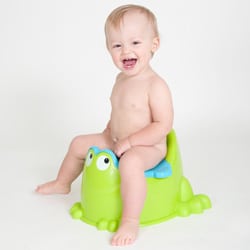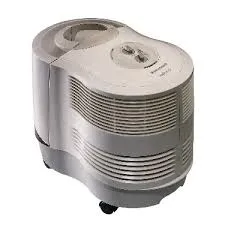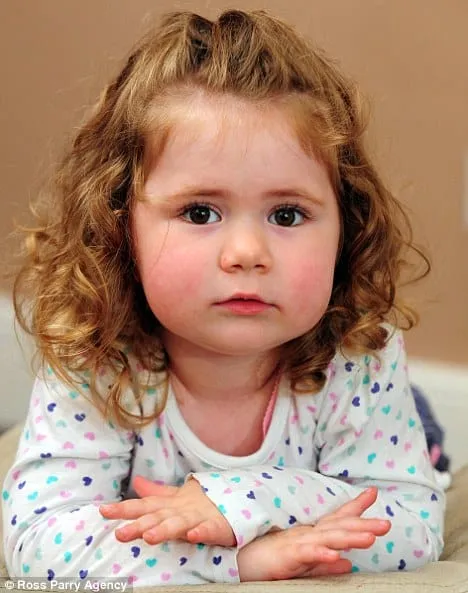When you start baby potty training for your little ones, it will be helpful to get the facts to help you first. The first thing you should know is that most children are not ready to potty train until they are 18 months to 36 months of age - so chill, and don’t feel pressured by what other people tell you. Of course, every child is different and some may start sooner or later than this timeline. It is also said among mothers that boys are notoriously harder to potty train than girls, and that they usually train later rather than sooner.
You cant just start potty training at out nowhere, right? Right! There are a couple things that you need to know before you start potty training. Your child needs to be physically and emotionally ready. The age your kid or kids are ready to start is when they are 2 to 2 and a half years old. But not every child is the same, therefore the process for each child is different. So the ups and down will vary for each child. Be ready, because the process is long and frustrating, and it’s even worse if your child is not ready for it. Good thing for you we have a product that can help with potty training in 3 days. It provides great methods to minimize frustration and instead help you communicate effectively.
One of the first key things your kids should have down is control of their bladder and bowel movements. The first sign that they have control is them using the bathroom at the same time daily. Another sign is your child not having bowel movements while they sleep during the night. This is a very common issue with children but not having do deal with this will save you a ton of time. The next sign thing that can show a good is dry diaper. This mean they’re getting used to the methods put in front of them. A key element that must go with all of this is the basic skills such as removing clothes. This will let you know and even better your child your know that they can go to the bathroom by themselves.
Now will your child will be ready for this? Physically? Yes. Emotionally? No. So what’s holding you back? Your child. They must be willing to cooperate with you to start things off. You can motivate them to be a “big girl” or “big boy” by telling them that wearing underpants is better than diapers. Emotionally you should see certain signs telling you that they’re ready such as:
- Following simple instructions
- Act like they want to know what going on when others in your family use the bathroom.
- Show cleanliness when potty training. Many children go through an clean phase.
- They tell you to wear underwear instead of diapers.
- They bring up having a dirty diaper and having asked to be changed.
Do not over do it and try to get them trained all at once just because they’re showing sign of readiness. They can lose interest quickly so try making a game out of it or provide a reward when they do something that shows that they’re growing.
Of course, they must be ready for this step. You would like to start practicing with your child when they’re out of that stage where their automatic response in “no”. This will easy up the process of trying to get potty trained.
amzn_assoc_placement = “adunit0”; amzn_assoc_search_bar = “true”; amzn_assoc_tracking_id = “kiirumakini-20”; amzn_assoc_ad_mode = “manual”; amzn_assoc_ad_type = “smart”; amzn_assoc_marketplace = “amazon”; amzn_assoc_region = “US”; amzn_assoc_title = “Shop Related Products”; amzn_assoc_asins = “B007BISCT0,B008HRJKEU,B0154FF8OS,B005UJ3332”; amzn_assoc_linkid = “abc6f89612d4c09cf18445949398351a”;
My Child Is Resisting. What Do I Do?
Don’t force it. If they’re not ready, then they’re not ready when they start to resist. Stress can become a huge delay or disruption. Potty training becomes less effective when huge changes are made in the routine. Also, everything can be going fine with your child, but then could become difficult out of nowhere. Why does this happen? This is normal. You have to make sure they are ready and in a stable environment when they resume potty training.
This training should be an amazing learning experience for everyone involved. This should all be positive. If you start having trouble and you see no progress with your child, then it’s best to ease up. Always continue on a positive note with your child and make it a positive training.
Communication is key when trying to get your child to potty train effectively, so there’s a intellectual and verbal needed for potty training in 3 days. Let me give you a quick example of how the process should go. Driving a car with a manual transmission is very difficult to drive at first and have a great grasp takes a bit of time. First, you have to get a feel for the extra clutch pedal. At same time, figure out when it’s time to switch gears. Also, do all this smoothly for a simple and easy transition.
Potty training is the same. It’s difficult at first and before you know it, they get the hang of it. During the process, the tools your child will need to become familiar with the equipment, the physical business with adequate responses, forming a plan to do the right thing in a certain situation, and completing the task. Relaying your explanation, command, and responses effectively and tell they how well they are doing.
It takes time for the to learn. The average takes around 3 months to learn how to potty train until they can go by themselves. Now most of those days you will be dealing with a ton of frustration. They need to first realize when that feeling of going comes, it’s time to head to the bathroom or notify someone that it’s time to go. They will usually start showing these signs around the 12 to 18 month mark. The first action you need to tell them is to start taking them to the potty.
Potty Training Older Kids
Don’t be discouraged that your child is 3 or older and still hasn’t been potty trained yet. It’s natural if this is the case. Switching up to “big kid” underwear is a great way of getting started so they stop depending on the diaper as much as possible. There are different challenges when kids are at 3 years of age trying to potty train.
You have to stick to a certain routine and it’s crucial. These kids are older so it should be easier to understand and get a point across. Older kids do not want to stop playing at time so most need to be reminded to go to the bathroom every couple hours and making this a habit. Consistency is key when dealing with older children so they can avoid most of the accidents.
Offering a prize for completing a small task is a usual way of telling a child he or she has done a good job. Every child has a different reward that they usually like. It could range from candy bars to letting them play out. It’s a good idea to further and further the expectation that you would like to see depending on the amount of time that spent potty training in 3 days. The bigger the feat the bigger the reward. Find the sweet spot with your child to start seeing results because be sure that they to will remind you when they haven’t had any accidents.
Accidents? Are they happening regularly? There needs to be a set of rules in dealing with them. Do not give your child control over using the toilet. Send the message and follow guidelines strictly so they know what happens when accidents happen and let’s them know that they will not in a sense get away with it. Let them know that they have to do it just as good as their friends. Kids want to do what other kids are doing. Take advantage and show a positive attitude and the results will come.
The Myths of Potty Training
Myth 1: Just sitting your child on the potty trains them
Many parents believe leaving your child on the toilet will train them to potty train on their own. This is False! What this is actually doing is confusing your child and this is the last thing your child needs. When putting your child on the potty, they will sometimes go. Also, when the child has diapers on, they will go in the diapers as well. This tells your child that there is more than one place where they can go which confuses your child.
Myth 2: Childcare and daycare will help potty training.
Wrong. Very wrong! Nowadays, more daycares are refusing to take in children that are not fully potty trained. The childcare centers that will take these children in will commonly use a one size fits all type of diaper. This will conflict with your child’s training at home and confuse them from when to go. This easy and effective potty training method in 3 days is a great guide for your child.
Myth 3: Wet Diapers will teach them not to have accidents.
This is a method that seems like it would be very effective because of the discomfort that the child will feel. Actually this is the opposite of potty training. What it is actually doing is telling your child to pee and poop because that’s where it belongs. This also is putting your child at extreme risk for a serious infection from leaving it in the diaper!
Myth 4: Potty training usually is difficult and frustrating.
This should never be the case. This is a time where you learn about your child and when your child learns from you. This is time where you can lead your child to potty training in 3 days. With the correct approach, it’s a fun and rewarding time for the both of you which will cause less messes.
There are all kinds of infant potty training tips from books, CDs and DVDs that can give you some guidance. But which one should you listen to? It may be a better idea to ask your pediatrician what he or she recommends. Often these medical professionals can give you literature and lots of tips when it is baby potty training time. Not only did they graduate from medical school, they have been through the issue of potty training kids many times, perhaps even in their own home life. Most doctors will tell you not to worry if your child is late on the potty training schedule.
Baby potty training does not have to be particularly stressful. The first thing you should do once your child is older than 18 months is look for signs of their readiness to use the toilet. This may include expressing discomfort with dirty diapers and an increasing desire in using a potty seat. You may be able to entice your child into attempting to potty train by promising them new underwear and this can be a good natural incentive. Some, but certainly not all, toddlers will ‘hold it’ in an attempt to prevent going to the potty or soiling their training pants, but don’t give up as for many, there is no such thing as easy potty training!


